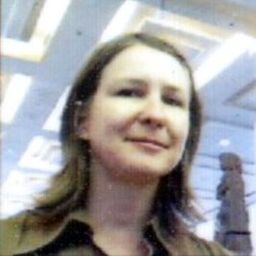
Sessions auxquelles Josée Laplace participe
Lundi 6 Juin, 2016
Sessions auxquelles Josée Laplace assiste
Vendredi 3 Juin, 2016
This forum will explore the current directions of critical heritage studies and what makes ACHS distinctive. Panel members will discuss what the term critical means to them, and what directions they would like to see develop in the future. To help develop an open dialogue, the session will also give considerable time to contributions from the audience.
Welcome addresses and cocktail, followed by the Concordia Signature Event "The Garden of the Grey Nuns". As the opening ceremony and cocktail take place in the former Grey Nuns' Motherhouse, recycled into campus residence and reading rooms by Concordia University, delegates will also have the possibility to discover the video Three Grey Nuns (3 minutes, by Ron Rudin and Phil Lichti. Three Grey Nuns recount their memories of communal life in the Grey Nun’s Motherhouse. Built...
Working with archival documents and the current-day morphology of the Grey Nuns' site, Dr Cynthia Hammond, Dr Shauna Janssen, in collaboration with Dr Jill Didur, will curate a series of installations and performances that speak directly to the rich heritage of a specific urban landscape: the gardens of the Grey Nuns' Motherhouse, now part of the Concordia University downtown campus. Visitors will have the opportunity to explore the lost working gardens of the Grey Nuns. As with other such...
Samedi 4 Juin, 2016
What if we changed our views on heritage? And if heritage has already changed? While, on the global scene, states maintain their leading role in the mobilization of social and territorial histories, on the local scale, regions, neighbourhoods and parishes have changed. Citizens and communities too: they latch on to heritage to express an unprecedented range of belongings that no law seems to be able to take measures to contain, often to the discontent of...
Dimanche 5 Juin, 2016
"What does heritage change?" is a multifaceted question to which the answer(s) are in primary respects related to real-life negotiations among different groups of citizens, cultures, races, ethnic groups, sexual identities, and social classes about received, official and/or widely accepted or accomodated intangible attributes, cultural traditions, historic monuments, buildings, and other transmitted or revived historical legacies. Heritage designated by and for whom, for what motivations, an...
Lundi 6 Juin, 2016
__ Please note that this session is scheduled in a distant location from the main conference; transportation will be provided to registered participants. Bus pick-up is scheduled at 7:30 AM in front of the DS Building (320 Saint Catherine East street, on the UQAM site and will return for 7:00 PM at the same location. Please wear your badge. ___ Veuillez noter que cet atelier est à l'extérieur de Montréal. Les délégués qui se seront enregistrés seront transporté...
Mardi 7 Juin, 2016
While historical churches are being abandoned all over the Christian West, more and more places are growing the opposite way: pilgrimage sites are being enlarged and enhanced, whole urban districts are being developed with churches and temples boasting diverse, and often unorthodox, religious practices. Epistemologically linked to heritage, the sacred now seems to follow a path of its own, staging itself in new settings where the “religious heritage” refers mostly to common practices, however...
The closing dinner of the conference, called “Pawâ” according to a French-Canadian tradition borrowed from the Native American lexicon, will be an opportunity to discover, in the heart of the Old Port of Montreal, an original culinary creation by the caterer Agnus Dei, from the renowned Maison Cartier-Besson in Montreal, leader in its field for its boundless creativity and event expertise. The dinner, in the form of stations, will offer delegates an exploration of Quebecois culinary heritage,...
Mercredi 8 Juin, 2016
||| Les Mohawks constituent la nation amérindienne la plus nombreuse parmi les dix différentes nations que compte le Québec. La nation mohawk compte près de 17 350 habitants. Il y en a 2 700 qui vivent hors réserve et les autres sont dispersés dans trois grandes communautés que sont : Kanesatake, Akwasasne et Kahnawà :ke. Située à proximité de Montréal, sur la rive sud du fleuve Saint-Laurent, la communauté de Kahnawà :ke compte près de 7 300 habitants. Elle est parmi les première...





